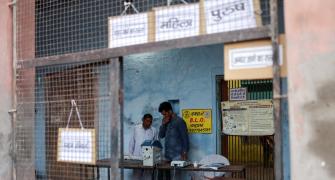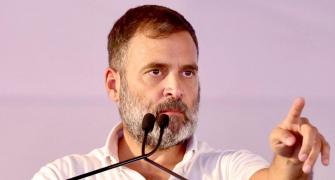Summer 2008 just got worse for the Indian consumer. The rise in the diesel, petrol and LPG prices implies that the household budget would take some more hit. And though the government is touting numbers like a .6 per cent increase in the Wholesale Price Index, the ground realities are completely different.
No wonder, Prabhakar Kolvankar, 64, retired general manager from the State Bank of India, is not a very happy person. "In the past two years, my monthly household expenses have risen from Rs 9,000 to Rs 16,000," he said. Kolvankar's family includes wife, son and daughter-in-law. He receives Rs 9,500 as monthly pension and a similar amount from his fixed deposits.
He lamented that in spite of a regular income stream, he has to depend on his son's income to run the household. And even his son cannot save and invest properly because of these frequent price hikes.
Even a young couple in their 30s, like the Dasguptas, are feeling the pinch. Shome Dasgupta, a production head at Maya Entertainment, complained that prices of vegetables had been going up constantly. The couple pay 20 per cent of their salary as rent and are afraid that their saving ability will come down further.
Madan Sabnavis, the chief economist at NCDEX, said that after this hike the monthly household budgets would rise by 8-10 per cent. Consider this: while on the face of it, petrol and diesel prices have risen by 10 per cent and LPG by around 13 per cent, the cost of other commodities like food grains, vegetables and fruits will also go up because of the rise in the transportation cost. Then, travelling costs, even if by buses and autos, will rise to some extent.
Senior officials in the Ministry of Statistics said that though the direct impact of the numbers on the WPI is only 0.3 per cent, the real impact on household expenses would be to the tune of 10 per cent.
That basically implies that consumers will have to take a step back and evaluate their expenses because the same basket of goods is going to cost more now.
Of course, for many, a cut in the monthly expenses may not be possible, unless one shifts to cheaper goods. Financial experts say that it would wiser to cut down additional expenses like travel and especially, avoid taking any loans. With high interest rates, falling stock markets and rising expenses, this is definitely not the best time for the Indian consumers.








